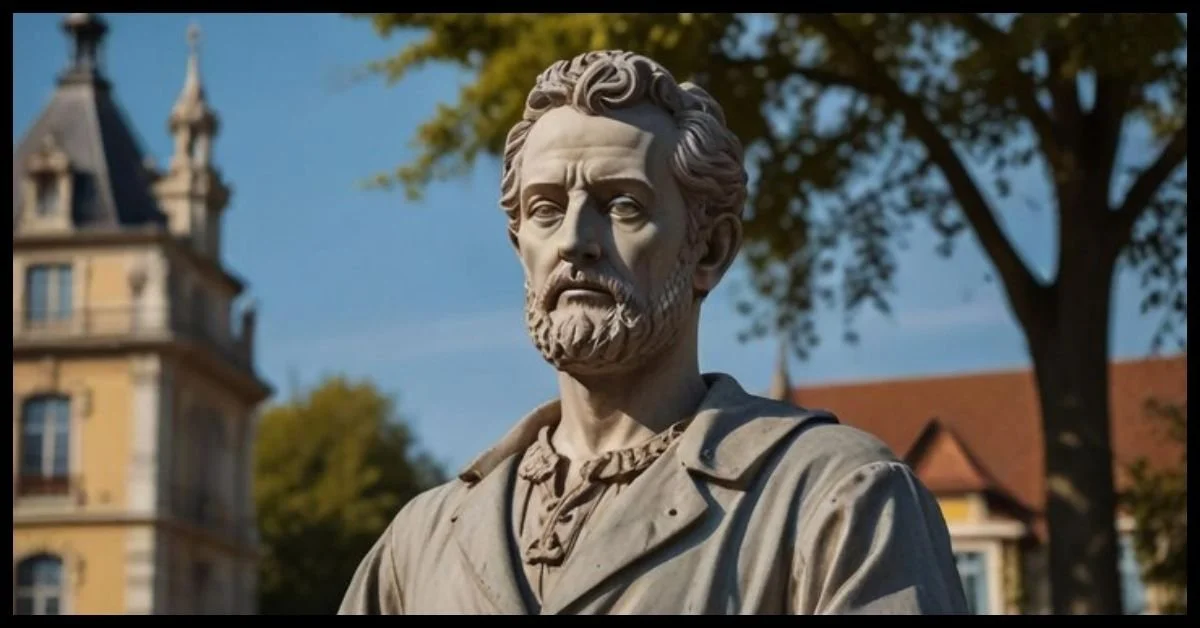In the annals of European history, the 16th century stands as a period of profound transformation, marked by political upheaval, religious reformation, and cultural advancements. Yet, amid the famous names of monarchs, reformers, and scholars, there are individuals who made significant contributions but have largely been forgotten. One such figure is Heinrich Servais, a name unfamiliar to most, yet whose impact on the social, economic, and political life of 16th-century Germany is worthy of exploration. Heinrich Servais, though not as celebrated as other historical figures, played a crucial role in shaping the course of events during 1555, a pivotal year in German history.
Germany in 1555: A Nation on the Brink
To understand Heinrich Servais‘ significance, it is essential to grasp the context of Germany in 1555. This was a time of tremendous political and religious turmoil. The Protestant Reformation, initiated by Martin Luther in 1517, had shattered the religious unity of Western Europe, particularly within the Holy Roman Empire, of which Germany was a central part. By the mid-16th century, religious conflict between Catholics and Protestants had escalated into a full-blown crisis.
The year 1555 was particularly crucial due to the signing of the Peace of Augsburg. This agreement, reached after decades of religious conflict, allowed German princes to choose whether their territories would follow Catholicism or Lutheranism. While this was a significant step toward religious tolerance, it left unresolved tensions and conflicts that would continue to simmer beneath the surface for years to come.
Heinrich Servais: A Man of Influence
Heinrich Servais may not have been a towering figure in the way that monarchs or religious leaders were, but he was deeply embedded in the fabric of Germany’s socio-political landscape. As a member of the rising bourgeoisie, Servais represented a new class of educated, wealthy individuals who were increasingly influential in shaping the political and economic future of the nation.
Born into a family of merchants in one of the bustling cities of the Holy Roman Empire, Servais quickly demonstrated an aptitude for trade, diplomacy, and governance. His family’s wealth allowed him access to education, where he studied law and economics, subjects that would later define his career. By the 1550s, he had become a key advisor to several regional princes, navigating the treacherous waters of religious politics and economic reform.
What set Heinrich Servais apart from many of his contemporaries was his pragmatic approach to the religious divide that was tearing Germany apart. Rather than aligning himself strictly with either Catholicism or Lutheranism, Servais advocated for a more flexible, tolerant approach. He believed that economic prosperity and political stability could only be achieved if religious differences were set aside in favor of a unified national identity. His views, while controversial at the time, resonated with many merchants and townspeople who were weary of the constant wars and instability caused by religious conflict.
The Economic Vision of Servais
One of Heinrich Servais’ most enduring legacies was his vision for economic reform in Germany. He understood that the Holy Roman Empire, fragmented and weakened by internal strife, was losing ground to emerging powers like Spain and France. For Germany to remain competitive, it needed a robust economy that could withstand the challenges of the modern world.
Servais championed the development of infrastructure, particularly the improvement of roads and trade routes. He also advocated for the establishment of a unified currency, believing that economic integration was essential for political stability. His efforts in this regard, though only partially realized during his lifetime, laid the groundwork for future reforms that would help modernize Germany’s economy in the centuries to come.
His role as a diplomat was equally crucial. Servais was frequently called upon to mediate disputes between rival princes, using his knowledge of law and economics to craft solutions that benefited all parties. His diplomatic skills were particularly evident during the negotiations leading up to the Peace of Augsburg. While not directly involved in the treaty’s drafting, Servais’ influence on key decision-makers helped shape the final agreement.
A Forgotten Legacy
Despite his many contributions, Heinrich Servais’ legacy has largely been forgotten by history. This is partly because he operated behind the scenes, working as an advisor rather than a public figure. Additionally, his emphasis on pragmatism and compromise in an era of extreme religious polarization made him a divisive figure in his time. While some praised his efforts to bring about peace and economic prosperity, others viewed him as lacking conviction or loyalty to either religious cause.
The events of 1555, particularly the signing of the Peace of Augsburg, overshadowed Servais’ contributions to the broader history of Germany. The treaty, while significant, did not resolve the underlying tensions between Catholics and Protestants, and within decades, Germany would be plunged into the devastating Thirty Years’ War. Servais’ vision of a more unified, economically strong, and religiously tolerant Germany would remain unfulfilled during his lifetime.
Conclusion
Heinrich Servais may not be a household name, but his impact on the course of German history is undeniable. As an advocate for religious tolerance, economic reform, and political stability, he played a critical role in shaping the events of 1555 and beyond. His pragmatic approach to the challenges facing Germany during this tumultuous period provides a valuable lesson for future generations.
While his legacy has been overshadowed by more prominent figures, the untold story of Heinrich Servais offers a unique perspective on a pivotal moment in European history. By revisiting the contributions of forgotten figures like Servais, we gain a richer understanding of the complex forces that shaped the modern world.




